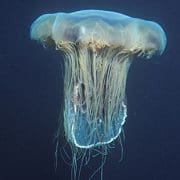2023 Raincoast Speaker Series
“Life at Night”
Every day as the sun sets a whole new world opens up. Strange and fascinating creatures with incredible adaptations have evolved to survive and thrive in a world without light. From the open ocean to our own shadowy backyards, an astonishing variety of species make the most of the moonlight, living just out of sight.
This spring, hit the lights and come to the dark side to join expert speakers from around the world for a glimpse into the secret nocturnal lives of creatures both familiar and fantastic and the world they live in. Come learn about the amazing adaptions of moths that are now being used to operate hyper-smelling drones. Learn about bats that can hunt with deadly precision even in absolute darkness. Get up close and personal with the hardly seen, but always near urban bandits – raccoons. Learn about the raptors that hoot and hunt under the shadow of night. And beyond our planet, let us introduce you to our solar system beyond, the Milky Way, and the origin of our nearest celestial mass – the moon.
On the Thursdays listed below, we’re going dark, and you’re invited. We can’t wait to (not) see you.
January 26: Dr. Suzanne MacDonald, Urban racoons in Canada
February 16: Dr. Melanie Anderson, Moth antenna on a smelling drone
February 23: Dr. Stephanie Monty, Galactic Archaeology
March 2: Dr. Merlin Tuttle, The Magical World of Bats
March 16: Dr. James Duncan, Owls: A short tale about long-ears
March 30: Dr. Stephanie Monty, Galactic Archaeology – Back by popular demand.
Working the night shift: Urban racoons in Canada
Dr. Suzanne E. MacDonald: Department of Psychology at York University
Thursday, January 26, 7:00 pm
via Zoom
They work at night, traveling unseen through the city like masked bandits, one of the true success stories of species adapting to human disturbance. How do raccoons (Procyon lotor) survive so well in the urban jungle? And are humans unwittingly creating an ‘Uber raccoon’? In this talk I will explore what we know about raccoons, how they live alongside us, and how they may eventually take over the world…if we let them!
Dr. Suzanne E. MacDonald is currently University Professor in the Department of Psychology at York University, appointed to the graduate programs in both Psychology and Biology. She has three main areas of research expertise, including memory and cognition (“how animals think”), the psychological well-being of captive animals, and the impact of human activity on wildlife. Her research is conducted both in the field, at sites in Kenya and throughout Canada, as well as at the Toronto Zoo, where she has volunteered as their Behaviorist for over 25 years.
Best of both worlds: Moth antenna on a smelling drone
Dr. Melanie Anderson: researcher at the University of Washington in the Biology Department
Thursday, February 16, 7:00 pm
via Zoom
Nature has developed amazing chemical sensors which greatly surpass man-made sensors in sensitivity and speed. A male Manduca sexta hawkmoth can sense the female’s pheromone in concentrations as small as 1 in 10^17 molecules of air. I use the moth’s antenna as a living chemical sensor to enable a palm-sized flying robot to seek out the source of an odor. This robot uses an autonomous search algorithm inspired by the way moths fly to search for food and mates. In the future, this technology could be used to detect gas leaks, find contraband, or even locate disaster survivors.
Melanie Anderson is a postdoctoral researcher at the University of Washington under Professor Tom Daniel in the Biology Department and is funded in part by her Fellowship through the UW CoMotion Startup Incubator. She received her PhD in Mechanical Engineering from the University of Washington in 2021. Her research focuses on biohybrid robotic systems, especially those that fuse multisensory input towards fully autonomous operation. Her most notable academic achievement is the creation of the Smellicopter, a biohybrid palm-sized drone which uses a live moth antenna as a chemical sensor to autonomously seek out the source of a chemical odor. Follow the below link for more info & to RSVP.
Galactic Archaeology: The history of our home in the cosmos
Dr. Stephanie Monty: Researcher at the Institute of Astronomy within
the University of Cambridge
*this is a repeat presentation of February 23rd
Thursday, March 30, 7:00 pm
via Zoom
Stephanie was kind enough to offer an encore presentation for those that missed the February date.
The history of our universe spans 13 billion years, 99.998% of which humanity did not yet exist. Our own galaxy, the Milky Way, is at least ten billion years old, having survived what we believe is a violent history including several galactic collisions. While it is difficult to comprehend how ancient the majority of the night sky is, the physical scale of the Universe is also staggering. Despite being responsible for all life on Earth, the Sun is an average star – dwarfed by true stellar giants hundreds of times its size. And the Milky Way? Miniature compared to the ancient “red dead” galaxies littering the night sky. Join me as Galactic Archaeologists for the evening as we tour the cosmos, spanning both space and time. Together we’ll navigate the smallest atomic scales, through to the Solar System, into the Milky Way and beyond. We will explore questions like when and how did the hydrogen, oxygen and iron in our bodies form, what are the physical processes that govern the Earth, how does the history of our Galaxy compare to others, and how will the Universe end?
Dr. Stephanie Monty is an astronomer primarily working in the fields of Galactic Archaeology and astronomical instrumentation. The aim of her research is to understand the history of the Milky Way and how both the light and dark components came to be. Stephanie is currently employed as a post-doctoral researcher at the Institute of Astronomy within the University of Cambridge. Prior to that, she completed my PhD in Astrophysics at the Australian National University and her BSc in Physics & Astronomy at the University of Victoria, Canada. For more info visit Dr. Monty’s website.
“In my heart I’ll always be a West Coast Canadian, happiest when on rainy forest walks surrounded by cedars and firs.”
The Magical World of Bats
Dr. Merlin Tuttle: founded Merlin Tuttle’s Bat Conservation (MTBC)
Thursday, March 2, 4:00 pm
via Zoom
Dr. Merlin Tuttle is a resident of Austin, Texas. He is an internationally recognized leader in research, conservation and photography of bats. His photos and research have been featured in five National Geographic articles, the journal Science, and many other leading publications. He founded Merlin Tuttle’s Bat Conservation (MTBC) where he is currently and solely active. Merlin also founded and led Bat Conservation International for nearly 30 years before leaving in 2009.
Through MTBC Dr. Tuttle continues to provide the world’s finest bat photo gallery and the most up-to-date responses to grossly exaggerated disease speculation about bats. This is also the only place to access his more than 60 years of unique expertise or support his work. At age 80, he is still passionately teaching the world to understand and appreciate the vital roles of bats. Since founding MTBC, he has continued his worldwide efforts from Brunei, Bulgaria, and Cambodia, to Taiwan, and Thailand, and from Brazil, Chile, and the Vatican, to South Africa.
His first book, America’s Neighborhood Bats, published in 1988, played a key role putting unfounded fear in perspective and in outlawing the then widespread poisoning of American bats living in buildings. His 2022 publication, The Bat House Guide, is the most comprehensive bat house book yet. His inspiring autobiography, The Secret Lives of Bats: My Adventures with the World’s Most Misunderstood Mammals, was published in 2018, with top reviews, including from The Wall Street Journal, The New Yorker and National Geographic. And in 2019, he served as science editor and sole photographer for the Smithsonian book, BATS: An illustrated guide to all species. He also serves as a Research Fellow in the Department of Integrative Biology at the University of Texas at Austin and still takes approximately a thousand new photos annually.
To learn more and support his work visit MerlinTuttle.org.
Owls: A short tale about long-ears
Dr. James Duncan: established a social enterprise called Discover Owls
Thursday, March 16, 7:00 pm
via Zoom
Since 1984 my wife Patsy and I have studied owls in Manitoba, Canada. Recently we wanted to start a new research project using camera traps to record owl breeding behaviour. In 2015 a pair of Long-eared Owls nested on our farm literally a stone’s throw from our house. This was a great chance to test this method and camera equipment on this enigmatic nocturnal species that has never been studied in this manner.
Join us as we peer into to the secret lives of this widespread migratory owl based on an intensive analysis of 128,694 images collected over 15 days during the nestling period. In this study we reveal new information on Long-eared Owl behaviour and diet. Experience their struggles to incubate eggs, and then raise and defend their young from extreme weather and predators. The results from this study were presented at the World Owl Conference in Pune, India, and it is a pleasure to now share it with you. This study demonstrates the advantages and limitations of nest camera traps for research now underway on Great Gray Owls and Barred Owls in Manitoba.
Joining me to help deliver this presentation will be Rusty, a live female Long-eared. Rusty is one of our education ambassadors, a dear feathered friend and a ruthless heckler. Hope she doesn’t steal the show, again!
Dr. Jim Duncan obtained a Ph.D. in 1992 from the University of Manitoba for research on the Great Gray Owl. Throughout his biology career Jim was active in diverse local, national, and international conservation initiatives until his retirement in 2018 as Director of Manitoba’s Wildlife and Fisheries Branch.
Jim claims that his various jobs were simply a way to support his obsessive habit of studying owls with his life partner and fellow zoologist, Patsy. Together, they have researched owls for over 35 years, have banded over 2,500 owls, and have published hundreds of articles, papers and several symposium proceedings on owls. Jim’s three beautifully illustrated books on owls of the world are an example of the importance Jim places on sharing scientific knowledge with the public in an engaging manner.
In 2018 Jim established a social enterprise called Discover Owls* which conducts education, research and conservation programs on owls in Manitoba and around the world. To date he has delivered over 480 live owl presentations to school classrooms and other venues and has delivered over 170 lectures and keynote talks on owls and conservation.
If people want to donate to Discover Owls, they can contact me at owlfamily@mts.net
Our Raincoast Education Speaker Series History
We have hosted a huge variety of quality presentations over the years!



